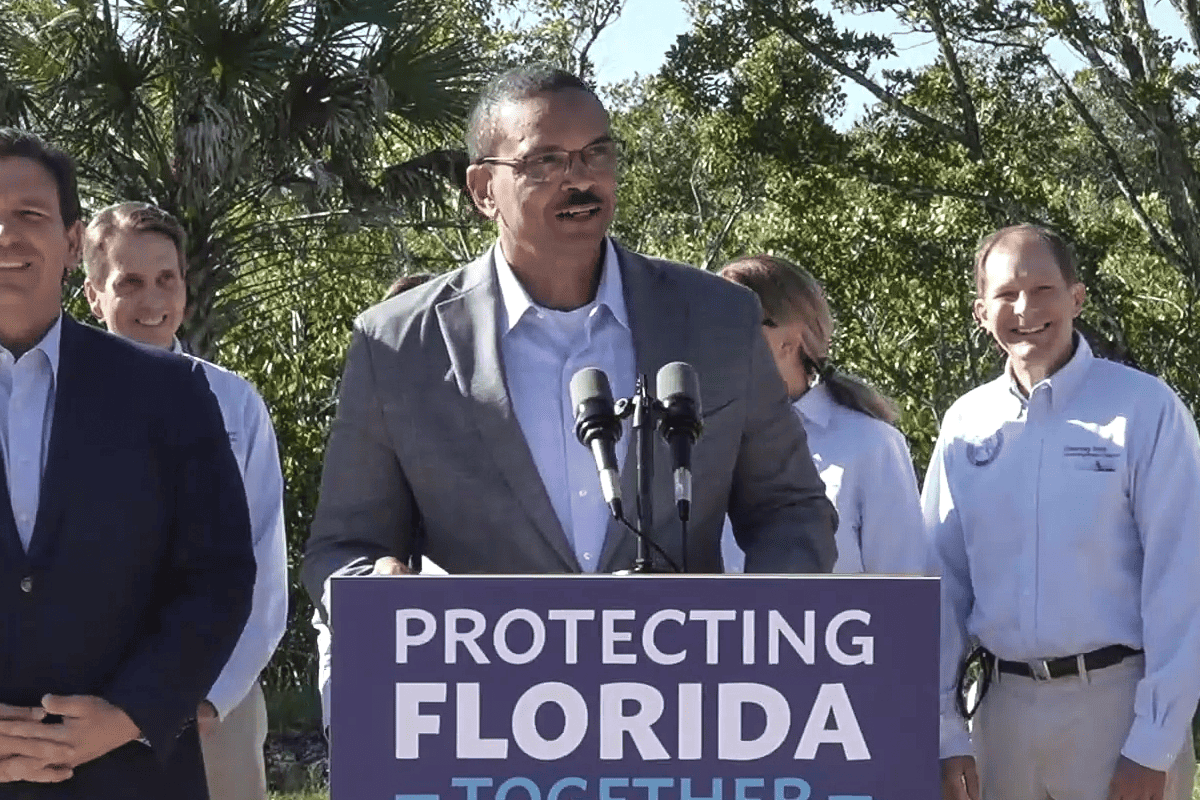Florida warns new EPA rule abides by World Economic Forum’s ‘net-zero world’

TALLAHASSEE, Fla. (FLV) – In response to a Biden administration proposal for new rules on greenhouse gas emissions, Florida urged the federal government not adopt the new rule and requested they nix the rulemaking progress altogether.
In his response, Florida Department of Environmental Protection Secretary Shawn Hamilton slammed the federal government for potentially trying to support the “‘net-zero world’ that the World Economic Forum so desires.“
Hamilton ultimately argued that the new federal rules violate the Administrative Procedure Act because they “are arbitrary, capricious and go well beyond the bounds of Congressionally authorized agency discretion.”
The regulation from the U.S. Environmental Protection Agency, or EPA, would operate under the Clean Air Act.
The EPA’s proposal focuses on reducing pollution via carbon capture and sequestration, where carbon dioxide emissions are separated, treated and transported for storage; “co-firing” coal power plants with natural gas, and co-firing a natural gas plant with hydrogen.
“Co-firing” means the power plant would combine usage of fuels in power generation.
Under the new rule, power plants would have to comply with new pollution limits.
Coal power plants would face the most scrutiny, the new proposal requiring such plants to reduce emission rates by nearly 90% by 2030, if they don’t commit to retiring operations by 2040. Other pollution-reducing requirements would have to be met if they continued to operate from 2031 to 2040.
The rule would also require certain natural gas plants to clamp down on emission rates.
In their response, Florida noted that the rules from the EPA focus on utilizing a “hydrogen economy” to achieve reductions in emissions – which Hamilton wrote “does not currently exist.”
“By prioritizing the use of unfounded technologies to force a reduction in readily available generation assets, the Agency places the reliability, affordability, and capacity of the nation’s energy supply at risk,” Hamilton wrote to EPA Administrator Michael Regan. “This risk is especially concerning given Florida’s geographic position and natural susceptibility to hurricanes and natural disasters.”
Hamilton slammed the new rule for providing “a mere 77 days” for stakeholders to review the EPA’s rule and issue comments.
“It is unclear if the EPA is truly seeking constructive feedback or if it is attempting to expedite rule adoption to support the ‘net-zero world’ that the World Economic Forum so desires,” he continued.
Refuting rationale for the EPA’s rule, Hamilton listed reasons as to why the proposal doesn’t make sense to be implemented across the U.S., and more specifically in Florida.
Hamilton pointed to Florida’s “superior” air quality, arguing the state’s existing efforts to conservative the local environment are already working and that emissions are falling.
“The state has accomplished this through ingenuity and smart governance—rather than instituting arbitrary mandates,” Hamilton wrote.
He went on to dispute the EPA’s assertion that carbon capture and sequestration would actually achieve the intended outcome, or be feasible at such a scale.
“The EPA’s determination relies on demonstration projects that have failed to reliably capture carbon at efficiencies comparable to the levels in the proposed rule,” he said. “[The EPA’s rule] does not properly account for the scale and complexity of efforts needed to implement those decisions.”
Hamilton also warned that if Florida power plants must abide by the new rule, power grid reliability may become at risk.
He argued that “co-firing” has also not been “adequately demonstrated” to be as effective as desired.
On Hamilton’s assertion that the EPA’s rule will constrain Florida’s power grid, he scathed the federal agency for prioritizing the implementation of a “hydrogen economy” rather than allow today’s residents use all tools at their disposal for public safety, such as Florida’s high senior population.
“Meeting demand both during blue and gray skies is not merely an expectation but a requirement to ensure public safety and that our vulnerable populations, including the state’s high senior population, are protected and cared for,” Hamilton said.
“It is clear the EPA has placed an emphasis on transitioning to a ‘net-zero world’ above the electric needs of Americans,” he concluded.
“The Department requests that the EPA terminate rulemaking and decline to adopt the proposed rules to maintain the reliability, affordability, and capacity of the nation’s energy supply.”



